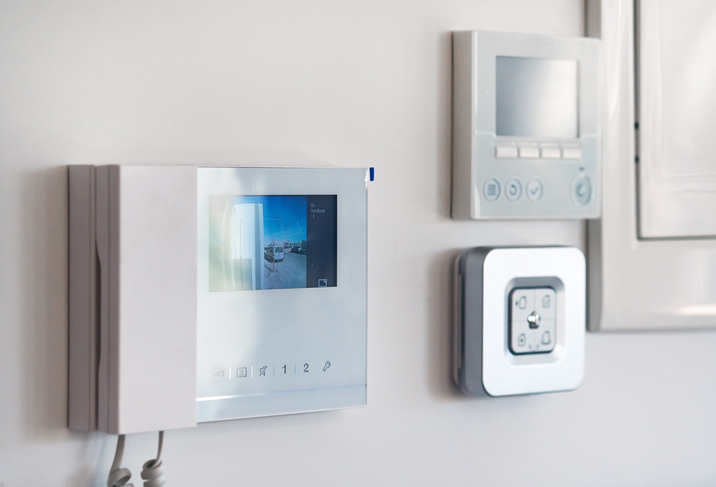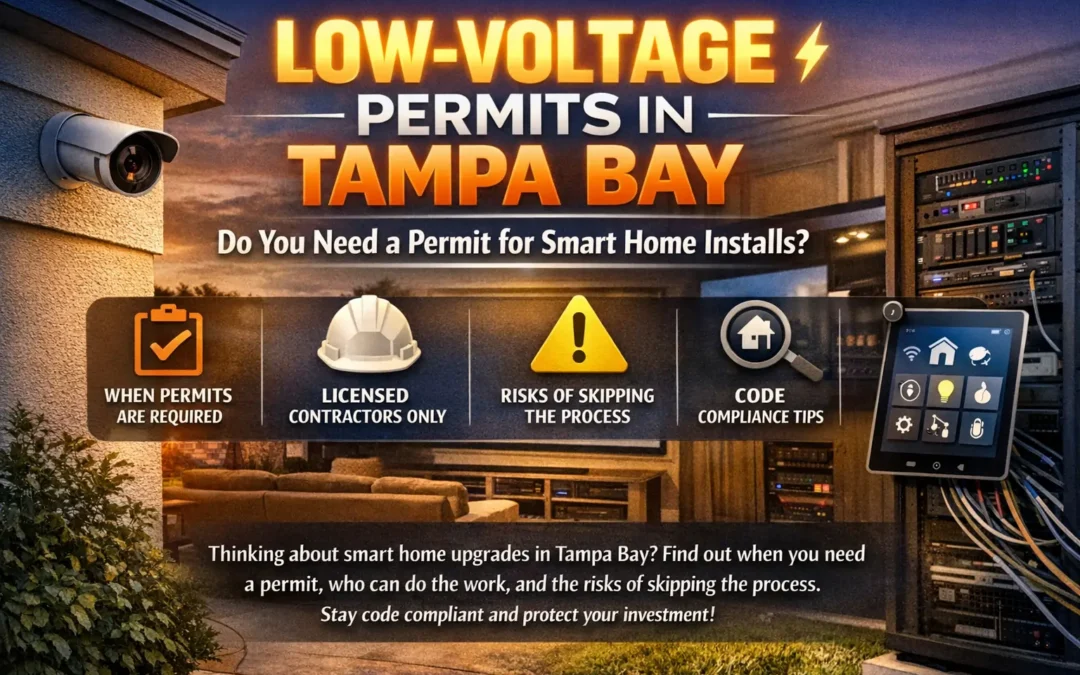Nothing is more important than keeping your family safe. You want your loved ones as secure as your home. But we’re not gonna ask you to put blind faith into just any home security vendor. At Hive, one of the highest-rated home automation companies in the Tampa Bay area, we want our clients to understand what makes up their home alarm systems and how they keep your home safe.
In this article we cover:
- System components
- Installation
- Vulnerable parts of your home
- Basic alarm system maintenance
What Is An Alarm System?
A security alarm is a system that alerts homeowners of potential danger in their homes. Used to detect unauthorized entry, an alarm system emits a signal (such as a siren or direct message) to alert the homeowner and emergency services.
Home security consists of different components including an alarm key, motion detectors, smokes, glass breaks, carbon monoxides, and window and door sensors. Your system can be as simple or complex as you want. Hive offers systems that connect to your smart device for easy viewing. Monitoring services are also available so no matter where you are, someone is keeping an eye on your home.
How Are Alarms Installed?
Alarms can be hardwired into the home or placed on a wireless network. No need for pre-wiring to protect your space. Often, a home security system is made up of multiple sensors installed throughout the home. As a part of Hive’s top-of-the-line system, this includes:
- An alarm panel inside the AV room
- 2 keypads (by the master room and garage entry door)
- 1 motion detector by the living room area
- 1 interior siren by the middle of the house
- Security sensors, hardwired or wireless for all the exterior windows and doors.
All these parts come together to optimize your home with our easy-to-use technology.
What Areas Are Most Vulnerable?
Above all, the point of a security system is to protect the most exposed areas of your home. Not sure where your home is most vulnerable? Then let’s run through some areas.
- Front & Back Doors) It’s a bit scary to think about, but doors are the main entrance for residents and thieves alike. Doors are often obscured by landscaping and decorations, like trees, potted plants, and hedges. In other words, it creates hiding places for potential burglars that you might not see out your window.
Specialty Doors also pose a risk. French doors are made of small glass panes that are incredibly easy to break and don’t shatter loudly. It’s perfect for thieves looking to unlock your doors. Likewise, sliding glass doors can be opened with small tools. - Windows) Similarly, windows are a common way of entering a home unnoticed. Not everyone remembers to close or lock their windows, especially in the stifling Florida summer. Thus creating another opportunity for criminals to enter.
- Garages) It’s incredible the number of people that don’t consider their garage an entryway. Many, in-fact, leave the door leading into their home unlocked, secure in the idea that the closed garage door will deter criminals.
In reality, thieves use a garage entry nearly 33% of the time. Some homeowners use the default code on automatic garage openers, which can be easily found online.
Deterrents
Physical deterrents like visible cameras and alarm stickers have proven to scare away criminals, thus leaving your home guarded and peaceful.
- Doors) Install cameras around your doors, and add extra lighting to eliminate any shadows. For specialty doors, install strong locks and glass break sensors to detect any mischief entering your home.
- Windows) Combat thieves by installing new, deadbolt locks on each vulnerable window. If your home is older, the frame might be weak or broken. It’s important to evaluate your windows and replace them if necessary.
- Garages) Make regular updates to your system. Even if it doesn’t lead directly outside, it’s imperative to always lock your garage door at night and when away. Treat the area as a second front door.
Hive offers many incredible security devices including the highest-caliber cameras in the Tampa Bay area. In addition, Hive Care provides active monitoring to ensure your home is protected. Check out our Home Security page to see other services, like smart-device enabling and smoke detection, offered by Hive.
How Long Will My Install Take?
One great thing about home security is it can be as simple or complex as you’d like. With a vast selection of security features available, Hive tailors your installation to your personal needs. An alarm system installation can take anywhere from a few hours to several days. The timeframe is dependent on factors including home size, system complexity, and the homeowner’s schedule. Installers also perform a demo so you understand how to make the most of your new automated system.
Don’t let the price scare you away from protecting your space. In a previous blog, we broke down the cost of a security system. It covers aspects like monitoring services, equipment, and installation.
Housekeeping Tips
- It’s integral to keep up with your security system maintenance. Test your alarms every 30 to 90 days to ensure everything is up and working. Should your system have a serious issue, get in touch with your supplier to troubleshoot the problem.
- Likewise, it’s a good idea to upgrade your system every 5 to 10 years. After so many years, parts begin to malfunction due to age. This leads to an increase in false alarms and a decrease in security.
- Keep your sensors clean and free of dust and debris. If you feel like you can’t keep up with the maintenance, then contact your system installer. A bulk of security monitors offer service plans, thus allowing you more freedom with the same safety. Check out Hive’s service plans here.
- Set off your alarm? No need to panic. Most systems can be disarmed by pressing the master code. If it is before 30 seconds, the alarm monitoring station will consider it a false alarm.
- Don’t worry about your system going out during a crazy Florida hurricane. Many alarm systems stay active for 12 hours without power using an internal backup battery.
Your home holds everything near and dear to you. Protect it with the smartest home security system. Have more questions? Then check out more alarm security behind-the-scenes on our Youtube channel and our full interview with one of our worker bees below:




